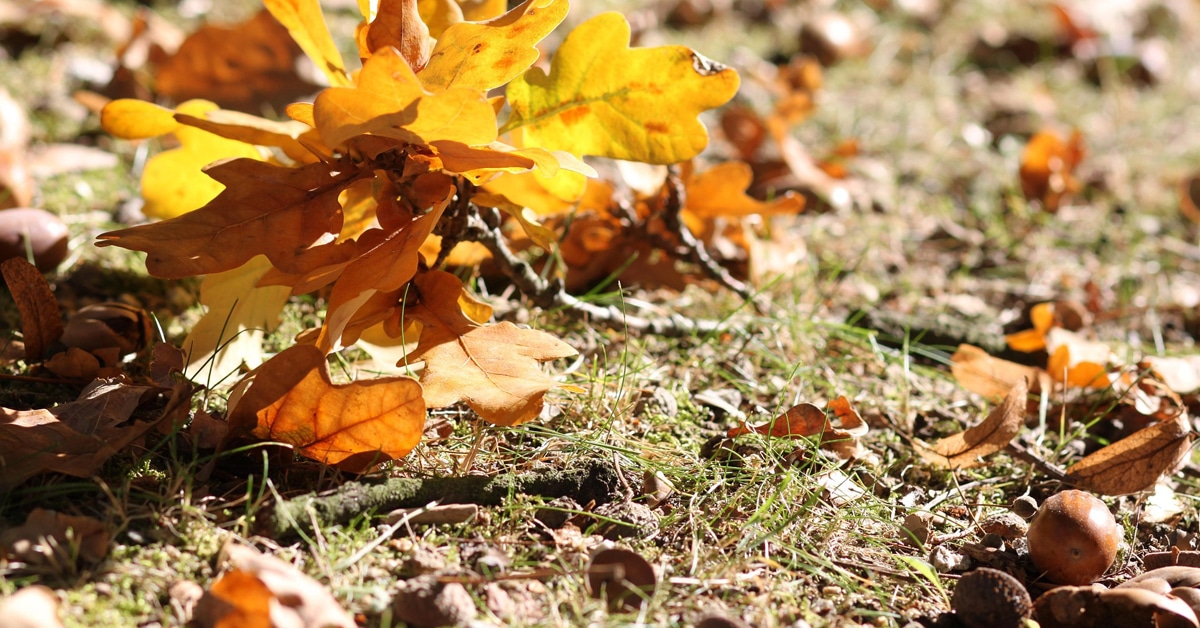Kentucky Equine Research has published the results of a couple of studies of interest to horse owners as autumn is well underway and winter approaches. The first found that adding water to feed does not boost overall water intake (which tends to drop in the colder months), and the second warns of the dangers of horses ingesting acorns.
Water Intake
Adding water to feed does not increase total or voluntary water intake, according to University of Florida researchers in a 2025 Equine Science Symposium abstract.
On average, horses at rest consume about 1 gallon (3.8 liters) of water per 100 pounds of body weight. Water needs vary with diet, weather, exercise, and lactation. Adding water to soften feed is commonly done to reduce the risk of choke, especially with pellets, beet pulp, and hay cubes. Feeding soaked or mashed feed is also thought to help increase water intake in poor drinkers or to rehydrate horses after exercise or competition.
In the study, six mature Quarter Horses were fed one of three diets: pelleted feed, timothy-alfalfa hay cubes, or shredded beet pulp. Each horse received supplemental feed to ensure similar nutrient intake. Feeds were given dry for three days, then soaked at a 2:1 water-to-feed ratio for six days. Researchers measured feed intake, water intake, and fecal moisture daily.
Results showed that horses consumed an average of 32.2 kg of water per day when fed dry feed and 25.4 kg per day when fed soaked feed. Although horses drank less when offered soaked feed, total water intake remained similar because they consumed the added water in the feed.
Researchers concluded that horses quickly adjust their water intake when water is added to feed. While soaking feed can still help hydrate poor drinkers or during cold weather, it does not maintain higher overall water intake. For increasing water consumption, targeted electrolyte supplementation may be more effective in stimulating thirst and maintaining electrolyte balance.
Acorn Poisoning in Horses
Oak trees are common in horse pastures, and while their falling acorns and leaves may seem harmless, they can be toxic. Acorn poisoning, long known in sheep and cattle, is increasingly reported in horses. The culprit is tannins — compounds that bind to proteins in the digestive tract and disrupt gut function, leading to liver and kidney damage. (Interestingly, pigs are resistant because their saliva neutralizes tannins.)
Affected horses often show sudden depression, loss of appetite, and severe diarrhea, sometimes bloody. Symptoms may often be mistaken for colic, but in this case horses respond poorly to painkillers. Some recover with intensive care including IV fluids, plasma, and antibiotics, although many die or must be euthanized.
Acorn toxicity tends to spike in years when oak trees produce heavy crops. For example, the Verderers of the New Forest, a regulating body in southern England, reported that in 2013, 69 ponies died from acorn poisoning — far above the previous decade’s average of 17 per year.
Generally, only a small proportion of exposed horses become ill, and the toxic dose is unknown. Still, it’s safest to limit horses’ access to fields containing acorns in autumn or ensure an ample alternative feed to discourage ingestion.
https://pubmed.ncbi.nlm.nih.gov/24917312/
The Latest









